Introduction
The Nigerian judiciary is a multifaceted system designed to uphold the rule of law and ensure justice across the nation. One critical component of this system is the superior courts of record, which play a crucial role in interpreting and applying the law. These courts are integral to the legal landscape, serving as repositories of legal decisions and precedents that shape the practice of law in Nigeria. This article explores the hierarchy, jurisdictions, functions, and significance of the superior courts of record in Nigeria.
Superior Courts of Record in Nigeria
A court of record is a judicial body that maintains a formal and permanent record of its proceedings and decisions. This record includes verbatim transcripts of court proceedings, judgments, and other relevant documents. In Nigeria, courts of record are essential for ensuring that legal proceedings are conducted with transparency and accountability. The superior courts of record in Nigeria are:
1. Supreme Court of Nigeria

The Supreme Court is the apex court in the Nigerian judicial hierarchy, established by Section 230 of the 1999 Constitution of the Federal Republic of Nigeria (as amended). It has both original and appellate jurisdiction. Its original jurisdiction includes matters between the Federation and a state or between states, while its appellate jurisdiction covers all decisions from the Court of Appeal.

The Supreme Court is the final arbiter in constitutional, civil, and criminal matters, and its decisions serve as binding precedents for all other courts in Nigeria. It is located in Abuja, FCT, and is composed of the Chief Justice of Nigeria and such number of Justices not exceeding twenty-one of the Supreme Court; appointed by the President on the recommendation of the National Judicial Council and subject to confirmation by the Senate.
2. Court of Appeal
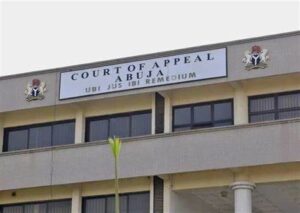
The Court of Appeal is the second-highest court in Nigeria, established under Section 237 of the 1999 Constitution of the Federal Republic of Nigeria (as amended). It has both original and appellate jurisdiction. It has original jurisdiction in presidential election petitions in Nigeria, and its appellate jurisdiction covers all decisions from the Federal High Court, State High Courts, the National Industrial Courts, and tribunals.
The Court of Appeal is composed of the President of the Court of Appeal and such number of Justices of the Court of Appeal, not less than forty-nine, of which not less than three shall be learned in Islamic Personal Law and not less than three shall be learned in Customary Law, or as may be prescribed by the National Assembly. The appointment of a Justice of the Court of Appeal is made by the President on the
recommendation of the National Judicial Council.
Unlike the Supreme Court, the Court of Appeal is located in different states of the country, with 20 divisions nationwide and its headquarters located at the Three Arms Zone, Abuja.
3. Federal High Court
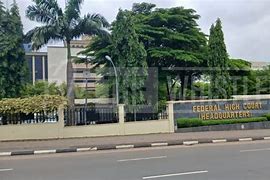
The Federal High Court is established under Section 249 of the 1999 Constitution of the Federal Republic of Nigeria (as amended). By virtue of Section 251(1) of the 1999 Constitution, it has exclusive jurisdiction in civil causes and matters, including the revenue of the government, admiralty, banking, taxation, intellectual property, issues related to federal agencies, and the interpretation of the Constitution and Federal Laws.
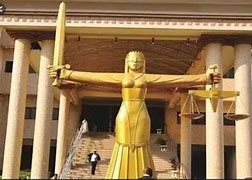
The Federal High Court consists of the Chief Judge and other judges as may be prescribed by the National Assembly. The appointment of a Judge of the Federal High Court is made by the President on the
recommendation of the National Judicial Council. The judgments of the Federal High Court can be appealed to the Court of Appeal.
4. State High Courts and the High Court of the FCT

Each of the 36 states in Nigeria has its own High Court, established by Section 270 of the 1999 Constitution of the Federal Republic of Nigeria (as amended). The Federal Capital Territory (FCT) High Court is established under Section 255 of the 1999 Constitution of the Federal Republic of Nigeria (as amended). It has jurisdiction to determine any civil proceeding in which the existence and extent of a legal right, power, liability, interest, obligation, or claim is in issue, or to determine any criminal proceeding involving or relating to a penalty, forfeiture, punishment, or other liability in respect of an offense committed by any person.

The State High Court is composed of a Chief Judge and such number of judges as may be prescribed by the State House of Assembly, while the FCT High Court is composed of a Chief Judge and such number of judges as may be prescribed by an Act of the National Assembly.
It is often referred to as a court of co-ordinate jurisdiction, meaning that it is not bound by the decision of another High Court, as decisions of High Courts are at best persuasive on other High Courts. It has unlimited jurisdiction except for matters within the exclusive jurisdiction of the Federal High Court.
5. National Industrial Court
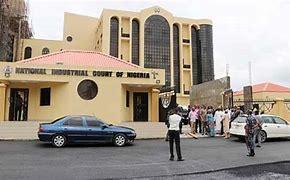
The National Industrial Court (NIC) is established under Section 254A of the 1999 Constitution of the Federal Republic of Nigeria (Third Alteration). It has exclusive jurisdiction over labor and industrial relations matters, including employment disputes, trade union activities, and workers’ compensation.
The NIC consists of the President of the National Industrial Court and such number of judges as may be prescribed by an Act of the National Assembly.
6. The Sharia Court of Appeal
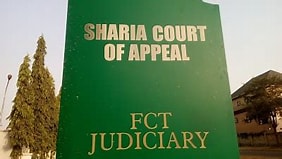
The Sharia Court of Appeal of the Federal Capital Territory (FCT) High Court is established under Section 260 of the 1999 Constitution of the Federal Republic of Nigeria (as amended). while the Sharia Court of Appeal of a State is established under Section 275 of the 1999 Constitution of the Federal Republic of Nigeria (as amended). It has appellate jurisdiction to hear and determine appeals from the decisions of Area and Upper Area Courts involving issues of Islamic personal law, particularly in the North and Northeast regions of Nigeria.
It consists of a Grand Kadi and such number of Kadis as may be prescribed by an Act of the National Assembly. Currently, the Court comprises at least three Hon. Kadis simultaneously sitting.
7. The Customary Court of Appeal
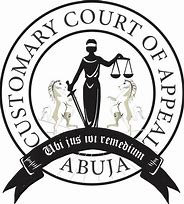
The Customary Court of Appeal of the Federal Capital Territory is established under Section 265 of the 1999 Constitution of the Federal Republic of Nigeria (as amended) while the Customary Court of Appeal of a State is established under Section 280 of the 1999 Constitution of the Federal Republic of Nigeria (as amended). It exercises supervisory and appellate jurisdiction in civil proceedings where the subject matter of the claim relates to Customary Law and has exclusive original jurisdiction in the Federal Capital Territory, Abuja, to hear and determine disputes relating to Chieftaincy Matters.
The Customary Court of Appeal is headed by the President of the Customary Court of Appeal and contains judges.
Conclusion
The superior courts of record in Nigeria are essential pillars of the judicial system, ensuring the proper application of the law, protection of rights, maintenance of legal consistency, and upholding of the rule of law. Through their detailed records and authoritative decisions, these courts play a pivotal role in shaping Nigerian jurisprudence and ensuring justice across the country.
References
1. The Constitution of the Federal Republic of Nigeria (1999) (as amended).
2. The Constitution of the Federal Republic of Nigeria (Third Alteration).
3. [Nigerian Supreme Court] (https://fjsc.gov.ng/the-nigerian-supreme-court/)
4. [Understanding the Nigerian Court System] (https://lawpadi.com/understanding-the-nigerian-court-system/).
5. Home :: NICN







